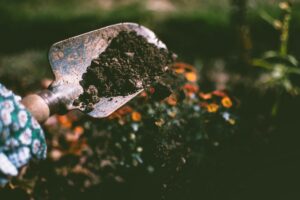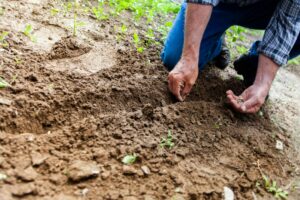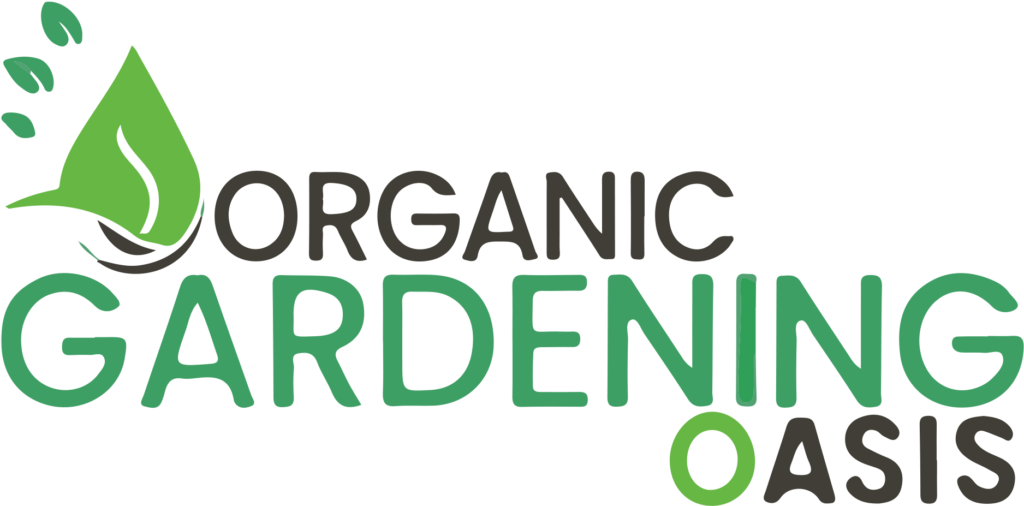Importance Of Soil Health In Organic Gardening
As an avid organic gardener with years of experience, I’ve seen firsthand how crucial soil health is for a thriving garden. Healthy soil is the cornerstone of organic gardening, providing the essential nutrients plants need to grow strong and produce bountiful yields.
Let me share my insights and practical tips on why soil health matters and how to improve it in your garden.
Understanding Soil Health
Soil health is the foundation of a productive garden. When discussing soil health, we refer to its ability to sustain plants, animals, and humans. Healthy soil is teeming with life, including microorganisms, insects, and earthworms, all working together to create a balanced ecosystem. This living soil helps retain moisture, supports plant roots, and breaks down organic matter into nutrients.
The Role of Organic Matter In Soil Health

Adding organic matter is one of the best ways to enhance soil health. Organic matter decomposes and releases nutrients slowly, such as compost, improving soil structure and fertility.
When I started my garden, I was amazed at how adding compost transformed the heavy clay soil into a rich, loamy texture. It made a huge difference in my plant growth and overall garden productivity.
Benefits of Healthy Soil in Organic Gardening
Healthy soil offers numerous benefits for organic soil care:
- Nutrient-Rich Plants: Plants growing in healthy soil are more nutritious, providing better yields.
- Pest Resistance: Healthy plants are less susceptible to pests and diseases.
- Water Retention: Good soil structure improves water retention, reducing the need for frequent watering.
- Ecosystem Support: Healthy soil supports beneficial insects and microorganisms that help control pests naturally.
Personal Experience with Soil Testing
A soil test can provide valuable insights into your soil’s health. When I first tested my garden soil, I discovered it was deficient in nitrogen. By adding nitrogen-rich organic fertilizers, I significantly boosted plant growth. Regular soil testing helps you understand your soil’s nutrient levels and pH, enabling you to make informed decisions about organic soil care.
Improving Soil Structure For Soil Health
Soil structure affects root penetration and water movement. Compacted soil can hinder plant growth.
I learned this when my vegetables struggled in hard, compacted soil. Incorporating organic matter, such as compost and aged manure, improved the soil structure, allowing roots to grow deeper and access more nutrients.
Composting for Healthy Soil
Composting is a fantastic way to recycle kitchen and garden waste while improving soil health. I set up a compost bin in my backyard, where I toss vegetable scraps, leaves, and grass clippings.
Over time, this material breaks down into nutrient-rich compost, which I use to enrich my garden soil. Composting reduces waste and provides an excellent source of organic matter for your garden.
Mulching for Soil Protection
Mulching is another essential practice for maintaining soil health. A thick layer of mulch helps retain moisture, suppress weeds, and regulate soil temperature. In my garden, I use straw and wood chips as mulch.
Not only does it keep the soil cool during hot summer months, but it also adds organic matter as it decomposes, further enhancing soil fertility.
The Importance of Crop Rotation
Crop rotation is a technique that involves changing the types of crops grown in a specific area each season. This practice prevents nutrient depletion and reduces the buildup of pests and diseases.
In my garden, I rotate my vegetable crops every year, planting legumes like beans and peas to fix nitrogen in the soil. This simple practice has significantly improved my garden’s soil health.
Avoiding Chemical Fertilizers

Organic gardening emphasizes natural inputs over synthetic ones. Chemical fertilizers can harm beneficial soil organisms and degrade soil health over time. I learned this when I switched from chemical to organic fertilizers.
My soil became more affluent, and my plants healthier. Organic fertilizers, such as compost, fish emulsion, or bone meal, support a balanced and thriving soil ecosystem.
Beneficial Microorganisms
Healthy soil contains beneficial microorganisms, including bacteria, fungi, and protozoa. These microorganisms decompose organic matter, fix nitrogen, and enhance nutrient availability. I incorporate compost and other organic matter into my soil to boost microbial activity. Encouraging a diverse and active microbial population is vital to maintaining soil health in organic gardening.
Water Management for Soil Health
Proper water management is crucial for organic soil care. Overwatering can lead to nutrient leaching and soil compaction while underwatering stresses plants. I use drip irrigation in my garden to deliver water directly to the roots, minimizing evaporation and runoff. This method has improved my plants ‘ health and conserve water techniques, benefiting my garden and the environment.
Compost Tea for Soil Enrichment
Compost tea is a liquid extract made from steeping compost in water. It’s packed with beneficial microbes and nutrients. I used compost tea as a soil drench and foliar spray in my garden. The results were impressive – my plants became more vigorous and disease-resistant. Compost tea is a powerful tool for enhancing soil health and plant vitality.
Encouraging Earthworms

Earthworms are excellent indicators of soil health. They aerate the soil, improve drainage, and break down organic matter. I add compost and organic mulch to my garden beds to attract earthworms. I’ve noticed a significant increase in earthworm activity, positively impacting my garden’s health.
FAQs
How can I tell if my soil is healthy?
Healthy soil is usually dark, crumbly, and full of life. You might see earthworms, insects, and other organisms. A soil test can also provide detailed information about nutrient levels and pH.
How often should I test my soil?
Testing your soil every 2-3 years is a good practice. However, if you’re noticing plant growth or health issues, it might be worth testing more frequently to diagnose the problem.
What are the best organic fertilizers for improving soil health?
Compost, fish emulsion, bone meal, and aged manure are excellent organic fertilizers. They provide a wide range of nutrients and improve soil structure.
Can I use kitchen scraps directly in the garden to improve soil health?
It’s better to compost kitchen scraps before adding them to your garden. Raw scraps can attract pests and may not decompose quickly enough to benefit your soil immediately.
Conclusion
Maintaining soil health is the foundation of successful organic gardening. You can create a thriving garden ecosystem by incorporating organic matter, practicing crop rotation, and avoiding chemical fertilizers.
From personal experience, I can attest that healthy soil leads to healthier plants, better yields, and a more enjoyable gardening experience. Take the time to care for your soil; it will reward you with a bountiful, vibrant garden.
